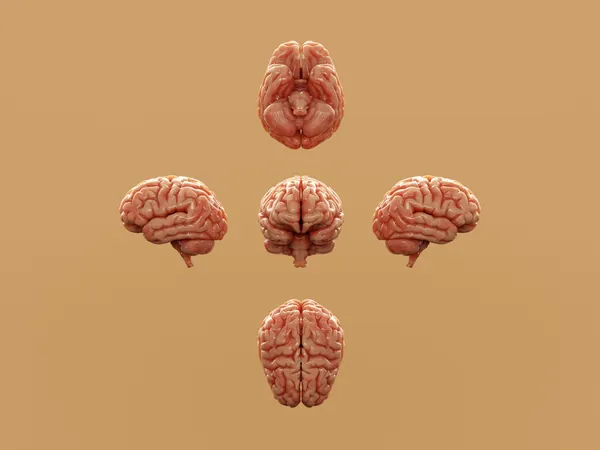
Unlocking the Evolutionary Mystery: Why Autism Rates Are Spiking in Humans
2025-09-09
Author: Ming
A Groundbreaking Discovery in Neurobiology
A recent study published in *Molecular Biology and Evolution* has unveiled a startling link between human evolution and the rising rates of autism spectrum disorders. With about 1 in 31 children in the United States diagnosed with autism, and the global estimate standing around 1 in 100, researchers are diving deep into the genetic underpinnings that may explain this phenomenon.
The Evolutionary Puzzle of Autism and Schizophrenia
While autism and schizophrenia are largely considered unique to humans, non-human primates rarely exhibit the behaviors associated with these disorders. This rarity highlights that the cognitive traits tied to these disorders—such as language skills—are significantly more complex in humans.
The Role of Advanced Genetic Techniques
Advancements like single-cell RNA sequencing have allowed scientists to identify thousands of distinct neuron types within the mammalian brain. These findings have revealed an astonishing variety of neuronal cell types, particularly in humans.
Unique Genetic Changes in Humans
Large-scale genetic studies have shown that humans possess genomic features that evolved rapidly compared to other mammals. Despite some neuronal types maintaining stability throughout evolution, the driving forces behind variations in evolutionary rates remain largely a mystery.
Accelerated Evolution of Specific Neurons
This study has taken a closer look at cross-species cell data, revealing that a prevalent type of neuron in the outer layer of the brain, known as L2/3 IT neurons, has evolved at remarkable speeds in humans compared to their ape relatives.
The Complicated Connection to Autism Genes
Intriguingly, this rapid evolution is associated with significant genetic modifications related to autism, seemingly driven by natural selection within the human lineage. However, the researchers emphasize that why these changes provided advantages to our ancestors remains elusive.
Speculating on Evolutionary Advantages
The researchers speculate that many autism-related genes are linked to developmental delays, potentially contributing to the slower brain development observed in humans versus chimpanzees. This slower development may have had advantages, offering a window for complex thought processes to evolve.
Language Development and Neurodiversity
Another compelling angle is the link between autism, language development, and brain evolution. The ability to process and produce language, often impacted by autism and schizophrenia, might have evolved alongside the rapid development of brain-related genes.
A Profound Conclusion on Human Neurodiversity
Lead author Alexander L. Starr notes, "Our results suggest that the same genetic changes making the human brain unique could also enhance neurodiversity in our species." The study paves the way for deeper inquiries into how our evolutionary past shapes the cognitive landscape of humanity today.



 Brasil (PT)
Brasil (PT)
 Canada (EN)
Canada (EN)
 Chile (ES)
Chile (ES)
 Česko (CS)
Česko (CS)
 대한민국 (KO)
대한민국 (KO)
 España (ES)
España (ES)
 France (FR)
France (FR)
 Hong Kong (EN)
Hong Kong (EN)
 Italia (IT)
Italia (IT)
 日本 (JA)
日本 (JA)
 Magyarország (HU)
Magyarország (HU)
 Norge (NO)
Norge (NO)
 Polska (PL)
Polska (PL)
 Schweiz (DE)
Schweiz (DE)
 Singapore (EN)
Singapore (EN)
 Sverige (SV)
Sverige (SV)
 Suomi (FI)
Suomi (FI)
 Türkiye (TR)
Türkiye (TR)
 الإمارات العربية المتحدة (AR)
الإمارات العربية المتحدة (AR)